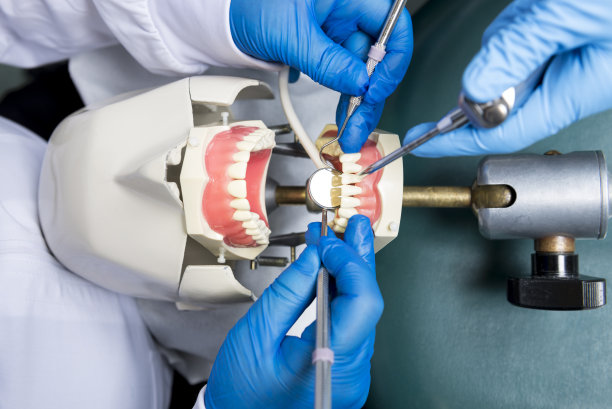Summary: Before undergoing a dental filling procedure, it is crucial for patients to understand several essential precautions that can enhance both their comfort and the effectiveness of the treatment. This article outlines four key areas of consideration: preparation and consultation, pain management techniques, post-procedure care, and ongoing oral hygiene practices. Each aspect emphasizes the importance of proactive measures to ensure optimal oral health and satisfaction with the filling procedure. By being informed and prepared, patients can navigate their dental visits with confidence, leading to better outcomes and a healthier smile.
1. Importance of Preparation and Consultation

Before any dental procedure, including fillings, it is essential for patients to prepare adequately. A thorough consultation with the dentist can clarify the process and address any questions or concerns. This communication is the key to understanding what to expect, both during and after the procedure.
During the consultation, patients should disclose their complete medical history, including any allergies, medications, and existing health conditions. This information is vital for the dentist to determine the appropriate anesthetic methods and materials used in fillings, which can significantly impact patient comfort and safety.
Moreover, understanding the types of materials available for fillings—such as amalgam, composite resin, or ceramic—allows patients to make informed decisions. Different materials come with various benefits, including durability, appearance, and cost, which should align with the patients preferences and dental needs.
2. Pain Management Techniques to Consider
Managing pain and discomfort during a dental filling procedure is a priority for both patients and dentists. Patients should discuss pain management options during their initial consultation. Typically, local anesthesia is employed to numb the area, ensuring a painless experience.
Some individuals may experience anxiety when facing dental procedures. In such cases, it can be beneficial to explore relaxation techniques, such as deep breathing exercises, or even sedation dentistry for patients with severe anxiety. Communicating feelings of unease to the dentist will facilitate a supportive environment tailored to individual needs.
It is also beneficial to discuss any potential use of additional pain relief post-procedure, such as over-the-counter pain medications. Understanding these options beforehand can help patients feel more at ease and prepared for the recovery phase.
3. Essential Post-Procedure Care Guidelines
After a dental filling, patients must adhere to specific post-procedure care instructions for optimal healing. Initially, it is crucial to avoid consuming hot or cold substances for a few hours, as the numbness from anesthesia can mask sensations, leading to unintentional burns or injuries.
Maintaining good oral hygiene is imperative. Patients should be gentle while brushing and avoid the filled area for a short period. Following the dentists advice on when to resume normal brushing habits will significantly aid in preventing irritation around the filling.
Additionally, monitoring for any signs of complications, such as persistent pain or unusual sensitivity, is crucial. If discomfort occurs beyond what is expected, patients should promptly contact their dentist to address any issues that may arise, ensuring the fillings longevity and integrity.
4. Ongoing Oral Hygiene Practices for Health
Oral hygiene practices don’t stop at the office; they extend into daily routines. After receiving a dental filling, patients should continue regular brushing and flossing, making it a priority to maintain the health of their teeth and gums, as these contribute significantly to the filling’s success.
Regular dental check-ups play a vital role in sustaining oral health, aiding in early detection of any potential issues that could lead to further fillings in the future. Regular visits allow dental professionals to monitor the filled area and overall oral health.
Lastly, patients should consider dietary choices that support dental health. Limiting sugary foods and beverages can help prevent new cavities, ensuring that existing fillings remain protected. Emphasizing a balanced diet rich in nutrients will contribute to not just oral health, but overall well-being.
Summary:
In conclusion, preparing for a dental filling involves various essential precautions that support optimal oral health outcomes. From pre-procedure consultations to understanding pain management techniques, post-procedure care, and ongoing hygiene practices, each aspect contributes to a positive dental experience. By being proactive and informed, patients can improve not just the effectiveness of their fillings but also their overall dental health.
This article is compiled by Vickong Dental and the content is for reference only.
Vickong Dental
Vickong Dental is a large medical group established in Hong Kong in 2008 by professors from well-known medical universities in Guangdong and Hong Kong, as well as medical doctors from key national '985' universities (including Master's supervisors and senior professors). The chain of branches brings together expert dentists with PhDs and Master's degrees from Hong Kong and Mainland China, committed to providing high-quality dental treatment.
"Vickong Dental Practices the University Motto of 'Healing and Serving Society,' with a Stable Operation for Sixteen Years. It Has Been honored with Hong Kong Enterprise Leaders's Choice,' and is a Global Trusted Implant Center for the Nobel Implant System. Recommended by Hong Kong Metro Broadcast and Guangdong Television, it Serves Customers from Over Thirty Countries and Regions, Gaining the Trust and Favor of Citizens from the Guangdong-Hong Kong-Macau Greater Bay Area and Surrounding Cities.

Thousands of customers' unanimous praise
The most recognized and highly recommended dental service by customers in the Guangdong-Hong Kong-Macau Greater Bay Area
We Ensure You Receive Detailed Care and Attention Here
Hong Kong standards, Shenzhen prices, Your Trusted English-speaking dentists

Vickong Dental Medical-Grade Instrument Disinfection Process
Vickong Dental Medical-Grade Instrument Disinfection Process

Vickong Dental Chain: A Warm and Comfortable Environment for Treatment






Appointment Hours

Q&A
Why choose Vickong Dental?
Vickong Dental practices the university motto 「Medicine to Benefit Society」, with each branch bringing together highly qualified dentists with doctoral and master’s degrees from Hong Kong and the Mainland, and has maintained seventeen years of steady operation。Recipient of 「2024 Hong Kong Enterprise Leaders Brand」, 「2025 Hong Kong Enterprise Leaders Brand」, a Nobel Biocare Global Trusted Implant Center, and a brand recommended by Metro Radio Hong Kong and Guangdong TV。
To date, we have served customers from more than thirty countries and regions,earning exceptionally high word-of-mouth recognition and trusted recommendations from residents across the Guangdong-Hong Kong-Macao Greater Bay Area and surrounding cities
We have eight major branches in Zhuhai、Shenzhen,and a consultation and service assurance center in Hong Kong,so you can book a free consultation at any time for any questions,which is very reassuring.
If I do not accept the quotation after the CT scan, will I be charged??
No! As long as the actual treatment has not started, you will not be charged any fees.
Will there be any additional charges during the treatment process?
No, there won’t be any additional charges. Before treatment begins, we will clearly explain the treatment plan and its corresponding fees. Only after the patient agrees and signs the consent form will we proceed with the dental service.
Can I pay in Hong Kong dollars?
Yes. Vickong Dental accepts payment in Hong Kong dollars. The amount will be converted based on the exchange rate of the day, and the applicable rate will be clearly communicated to you in advance.
Can I reschedule my appointment at any time?
Yes. Please contact us via **WeChat** or **WhatsApp** as early as possible, providing your original appointment time and details, along with your preferred new date and time slot for rescheduling.













